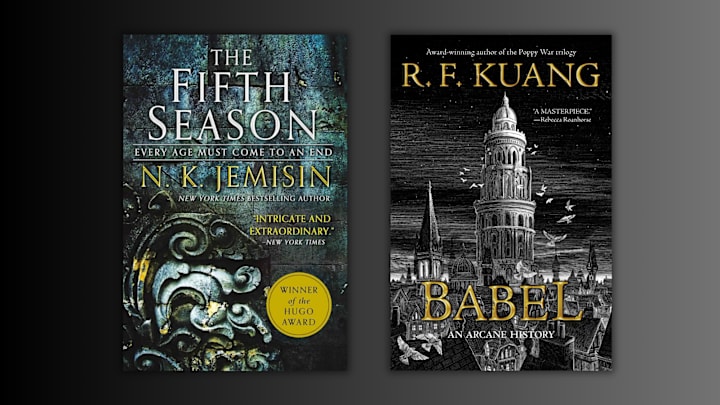The past decade has been a renaissance for fantasy lovers, gifting us with imaginative worlds that rival the classics from J.R.R. Tolkien or George R.R. Martin. But let's skip the nostalgia for the Shire and Westeros and take a look at the freshest, most inventive fantasy worlds that redefine epic storytelling.
Here's our picks of the five best fantasy worlds created in books in the last 10 years, delivering everything from magical realism to deep, unsettling atmospheres.
Welcome to the Broken Earth (N.K. Jemisin)
If tectonic activity could win awards, it would be this. N.K. Jemisin’s Broken Earth Trilogy didn’t just take home three consecutive Hugos; it shook the foundations of fantasy storytelling itself.
The world of the Stillness is an unrelenting spectacle of seismic catastrophes, where orogenes (humans with the ability to manipulate the Earth’s energy) are more feared than loved. Epic in scale, personal in emotion, and sharp enough to cut you like obsidian, the series delivered a world so unsettled and brutal that it forced readers to confront the boundaries of survival and oppression.
Pro tip: Keep some tissues handy; Jemisin doesn’t hold back her world-building or her emotional punches.

Oxford, but make it magical (Babel by R.F. Kuang)
R.F. Kuang’s Babel takes all the charm of academia and washes it in a veneer of bloody imperialism and greed. Set in a steampunk-esque 19th century, it merges the magic of translation with literal power (engraving a word in two languages creates potent, but ethically questionable, magic).
It’s like if Harry Potter went to Oxford but replaced the broomsticks and whimsy with rage against colonial exploitation. And honestly, it’s all the better for it. Using its fantastical world as an extended metaphor for empire, Babel doesn’t just ask questions about allegiance and morality; it demands answers.

Cairo never looked cooler (The Dead Djinn Universe by P. Djèlí Clark)
Ever wanted to see what happens when you throw djinn, magic, and 1912 Cairo into a blender with a side of alternate history? Look no further than P. Djèlí Clark's masterful universe.
From its novella beginnings to A Master of Djinn, this world’s got everything you didn’t know you needed in your life. Magical trams? Check. Sassy detectives who outwit both humans and deities? Double-check. Clark’s creation delivers an immersive, culturally rich, and dynamic setting where every spell and steampunk gadget shines brighter than a magic lamp.

The nightmare fairytale (Nettle & Bone by T. Kingfisher)
T. Kingfisher’s Nettle & Bone feels like someone took the whimsical-but-dark core of a Brothers Grimm fairytale and injected it with steroids.
What starts as a simple rescue mission through a creepy goblin market quickly morphs into one of the most eccentric (and disturbing) magical worlds of this decade. Seriously, where else could you find a demonically-haunted chicken and a bone-dog wandering a labyrinth full of undead guardians?
This world doesn’t even try to play nice, and what’s more surprising? You’ll fall madly in love with its tragic beauty. Fairytale nostalgia, but make it terrifying.

The factory meets magic (The Age of Madness by Joe Abercrombie)
Joe Abercrombie took the gritty allure of his First Law Trilogy and upped the stakes with The Age of Madness. Here, medieval fantasy doesn’t bow out quietly to industrialization; instead, it’s messy, brutal, and occasionally funny (in that "Are we laughing or crying?" kind of way).
The Union’s innovation-fueled rise may seem exciting, but Abercrombie doesn’t shy away from showing the human cost, piling workers, soldiers, mages, and grifters into an industrial drama packed with bloody ambition. It’s chaos, it’s clever, and honestly, it’s unforgettable.

What makes these fantasy worlds rise above the tumult of fantasy fiction? It’s their ability to balance epic, intricate settings with intense personal stories. They don’t just hand you a map; they make you care about every corner of the geography, every rule of the magic system, and every poor soul trying to make a living there.
These new classics are about more than just escapism; they invite you to explore the best and worst of humanity, with a little (or a lot) of magic thrown in for good measure.
Now, excuse me while I revisit Stillness with a side of existential dread.
More books:
To stay up to date on everything fantasy, science fiction, and WiC, follow our all-encompassing Facebook page and Twitter account, sign up for our exclusive newsletter, and check out our YouTube channel.
